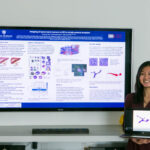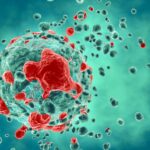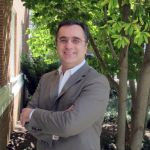Princeton physicist to discuss physics of cancer cell resistance
The fact that cancer cells frequently re-emerge after initial therapeutic attempts has dogged the efforts of oncologists to save patients’ lives for decades. According to Princeton physicist, Robert H. Austin, cancer cell resistance is primarily a biological reaction to stress and “one of the great unsolved, and deadly, problems in oncology.”
On Thursday, February 4, Austin will discuss, “The Physics of Cancer,” during a 3 p.m. joint colloquium hosted by Johns Hopkins University departments of Physics and Astronomy and Biophysics in the Schafler auditorium of the Bloomberg Center on the Homewood campus. The talk is free and open to the public.
Austin is principal investigator for Princeton’s Physical Science-Oncology Center and a trans-network partner with Johns Hopkins Engineering in Oncology Center, both of which are National Cancer Institute funded organizations.
Austin will address the general principles of physics, ecology, and biology and why recurrence of resistant cancer cells seems to be a universal phenomenon in cancer. He says that “evolution in small, stressed habitats is key to the rapid and inevitable re-emergence of resistance of cancer cells” (and) “that modern techniques of physical probes, genomics, proteomics and nanotechnology will allow us to analyze the evolutionary path of these emergent resistant cells.”
Related Links
Johns Hopkins Engineering in Oncology Center
Flyer for Prof. Austin’s colloquium
Physical Sciences in Oncology Centers of the National Cancer Institute
Latest Posts
-
 Q&A with PSON Intern Jocelyn Hsu
August 19, 2021
Q&A with PSON Intern Jocelyn Hsu
August 19, 2021
-
 Start Up Founders from Johns Hopkins Aim to Stop Spread of Cancer
August 3, 2021
Start Up Founders from Johns Hopkins Aim to Stop Spread of Cancer
August 3, 2021
-
 Protein Appears to Prevent Tumor Cells from Spreading Via Blood Vessels
July 15, 2021
Protein Appears to Prevent Tumor Cells from Spreading Via Blood Vessels
July 15, 2021


